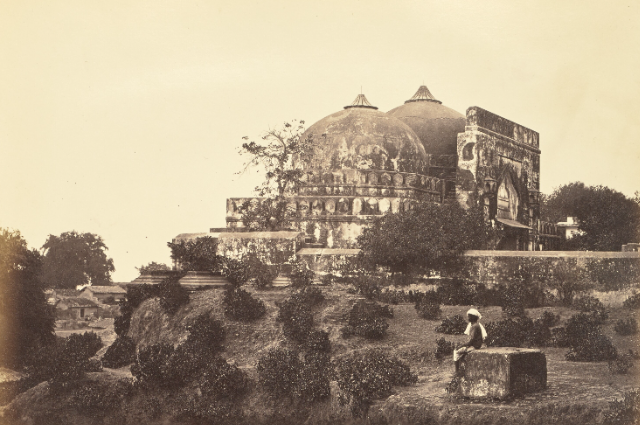Introduction:
December 6 is regarded as Black Day in India, especially after the Babri Masjid in Ayodhya was demolished in 1992. The event had a lasting impact on Indian politics and the country's socio-religious matrix. Many Indians are still inspired by this tragedy, and they discuss issues of communal strife, religious identity, and the concept of secularism in relation to religion in India.
Babri Masjid and History Context
The Babri Masjid, a mosque in Ayodhya, Uttar Pradesh, was established in 1528. It was built by Mir Baqi, Babur's general. As time passed, it remained an iconic symbol of Muslim dominance and one of the region's most important landmarks.
However, the location subsequently became the focus of heated political and theological debate. According to some Hindus, the Babri Masjid was erected over the ruins of an old Hindu temple where Lord Ram, one of Hinduism's most revered deities, was thought to have been born. For centuries, the existence of this temple was a contentious subject, but it gained significant momentum in the late twentieth century, primarily
The Ram Janmabhoomi movement, which pushed for the construction of a Ram temple on the disputed site, gained national prominence under the banners of the Vishva Hindu Parishad (VHP) and the Bharatiya Janata Party (BJP). Leaders like Lal Krishna Advani and Uma Bharti took the lead in advocating for the construction of a temple on the site of the Babri Masjid.
The topic became increasingly acrimonious, with Hindus and Muslims clashing more frequently. The movement was propelled by strong religious sentiments, and on December 6, 1992, a massive crowd of Hindu activists and kar sevaks (volunteers) gathered in Ayodhya to demand that the Babri Masjid be demolished to make place for the construction of the Ram Temple.
The Demolition of the Babri Masjid
That day, as hundreds of political and religious activists in a mob approached Babri Masjid with heavy police forces advising people not to enter the temple grounds, the crowd ran wild, pulling it down brick by brick with sheer force. As a result, the police were unable to maintain control of the situation.
The demolition of the Babri Masjid was more than simply an attack on a physical structure; it was a blow to the core beliefs of secular India. The tragedy sparked riots in several parts of the country, killing hundreds of Muslims and injuring thousands of Hindus. As a result, the two communities became even more distant from one another, and the nation's already high tensions between communities became much more pronounced.
Even years after the Babri Masjid was demolished, it remained the most contentious political issue. It had a profound impact on the Indian political landscape. It aided the emergence of the BJP because people in India believed that the right-wing party would use this issue to attract support from the Hindu majority, resulting in national electoral wins.
In the following, Hindu and Muslim parties engaged in various legal fights about ownership of the site. Following decades of legal challenges, the Supreme Court of India issued a major verdict in 2019. The court decided in favor of building a Ram temple on the site of the demolished Babri Masjid, while simultaneously mandating that the Muslim community be given an alternative plot of land to build a mosque.
Although this decision provided legal finality, it did little to repair the emotional and societal scars left in 1992. It sparked a public debate in India about religion and politics, as well as the judiciary's appropriate role in settling such delicate issues.
Impact on Secularity in India
In this context, many view the Babri Masjid demolition as a turning point in the secular democracy journey of India. It has always been considered that India was a land with a different mix of religious communities; secularism was enshrined within the Constitution. However, the demolition of the Babri Masjid highlighted some challenges in sustaining this secular fabric in the face of rising religious nationalism.
Numerous critics contend that the incident has exposed India's secular values' vulnerability to religious identity displacing national unity. The role of religion in political arenas and India's ability to maintain its pluralism and accommodate the desires of many communities have also been called into question by this episode.
Conclusion
A sobering reminder of the perils of religious extremism and the brittleness of social stability, December 6th continues to be a melancholy day in Indian history. In addition to causing physical devastation, the Babri Masjid's demolition left the Indian people with severe emotional wounds. This film serves as a warning—not about the importance of religion in politics, but about the fine line that must be drawn between historical observance and the harmonious coexistence of India's diverse cultures.
India must examine the lessons that can be learned, mend some divisions, try to bring communities together, and make sure that the incident doesn't happen again as it attempts to deal with what happened fifty years ago.

